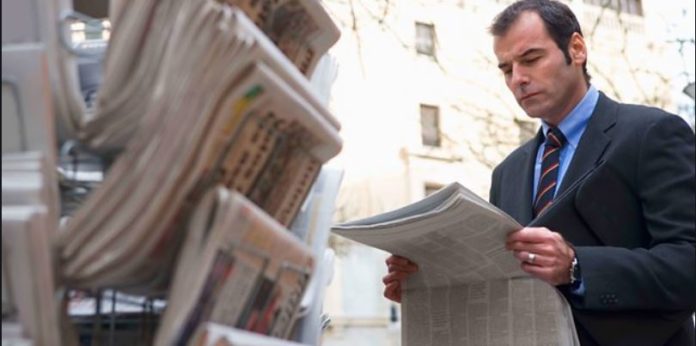Newspapers that are categorized as an essential service, constant disruption in their distribution impedes the availability of reliable information at a time of unprecedented public health emergency such as coronavirus pandemic and also constitutes an offense under the Essential Services Maintenance Act (ESMA), says India’s top lawyers expressing concern over the continued obstruction in the distribution of the newspapers.
Section 5 and section 6 of ESMA, 1981, clarify, those who disturb the distribution of essential services could be arrested without warrant and face imprisonment of up to one year.
Newspapers that are covered under ESMA as an essential commodity, delivery of it has been constantly disrupted during the lockdown period.
Senior advocate Maninder Singh, who has been an additional solicitor general, said circulation of the newspaper is an inseparable and essential part of the dissemination of information and is protected by Article 19(1)(a) and Article 19 clause(1)(g) of the Indian Constitution that guarantees right to free speech and profession, respectively. “The only method to achieve dissemination of ideas and information is by the circulation of newspapers. One does not publish a newspaper to keep it in godowns, he said”.
AM Singhvi, who is one of India celebrated Constitution experts, said “the fundamental right of residents to receive a hard copy of the print newspaper, the pleasure of flipping through it with a hot cup of tea, the advertising revenue behind these pages which rightfully funds not only free speech but the latter‘s foot soldiers, namely print journalist, weighs heavily on one scale”.
While acknowledging the dilemma faced by RWAs and instituting reasonable restrictions to entry arising from understandable apprehensions during these difficult times, Singhvi said, “On balance, with proper hygiene and safeguards by printers and suppliers, I would lean clearly and heavily in favor of facilitating the distribution of newspapers.
Another top constitutional lawyer, Rakesh Dwivedi, said, “I need newspapers more than biscuits in the morning. People of my age feel better with a hard copy of the newspaper. Since print and electronic media has been included in essential services, the newspapers should be allowed to be distributed freely”.
India’s renowned lawyer Harish Salve, who represented India at the International Court of Justice to save Kulbhushan Yadav from imminent execution in Pakistan and has served as a solicitor General, expressed serious concern over difficulties and obstruction being faced by newspapers in distribution.
“In this world of social media, where gossip and propaganda are elevated to the status of the gospel, the printed word on a responsible newspaper is clearly an essential service. In these difficult times, news in articles by responsible journalists, which informs without creating a sense of panic or despair, is essential for survival”, Salve told TOI.
Solicitor General Tushar Mehta, said, “there is no restriction in distribution of newspapers,. It is included in the essential services. So, no one should hinder the distribution of newspapers”.
What Salve and Singh said in the context of the circulation of newspapers, the same has been a consistent stand of the Supreme Court of India in its ruling since 1950.
In Ramesh Thapar versus state of Madras (1950 SCR 594), which pertained to ban on entry and circulation of a journal in the state of Madras, the Supreme Court had said, “There can be no doubt that freedom of speech and expression included freedom of propagation of ideas, and that freedom is ensured by the freedom of circulation. Liberty of circulation is as essential to that freedom as the liberty of publication. Indeed, without circulation, the application would be of little value”.
Similarly in the express newspaper’s case, in 1958, the Supreme Court of India had ruled, “Freedom of speech and expression includes freedom of propagation of ideas, which freedom is ensured by the freedom of circulation….the liberty of the press is an essential part of the right to freedom of speech and expression.





